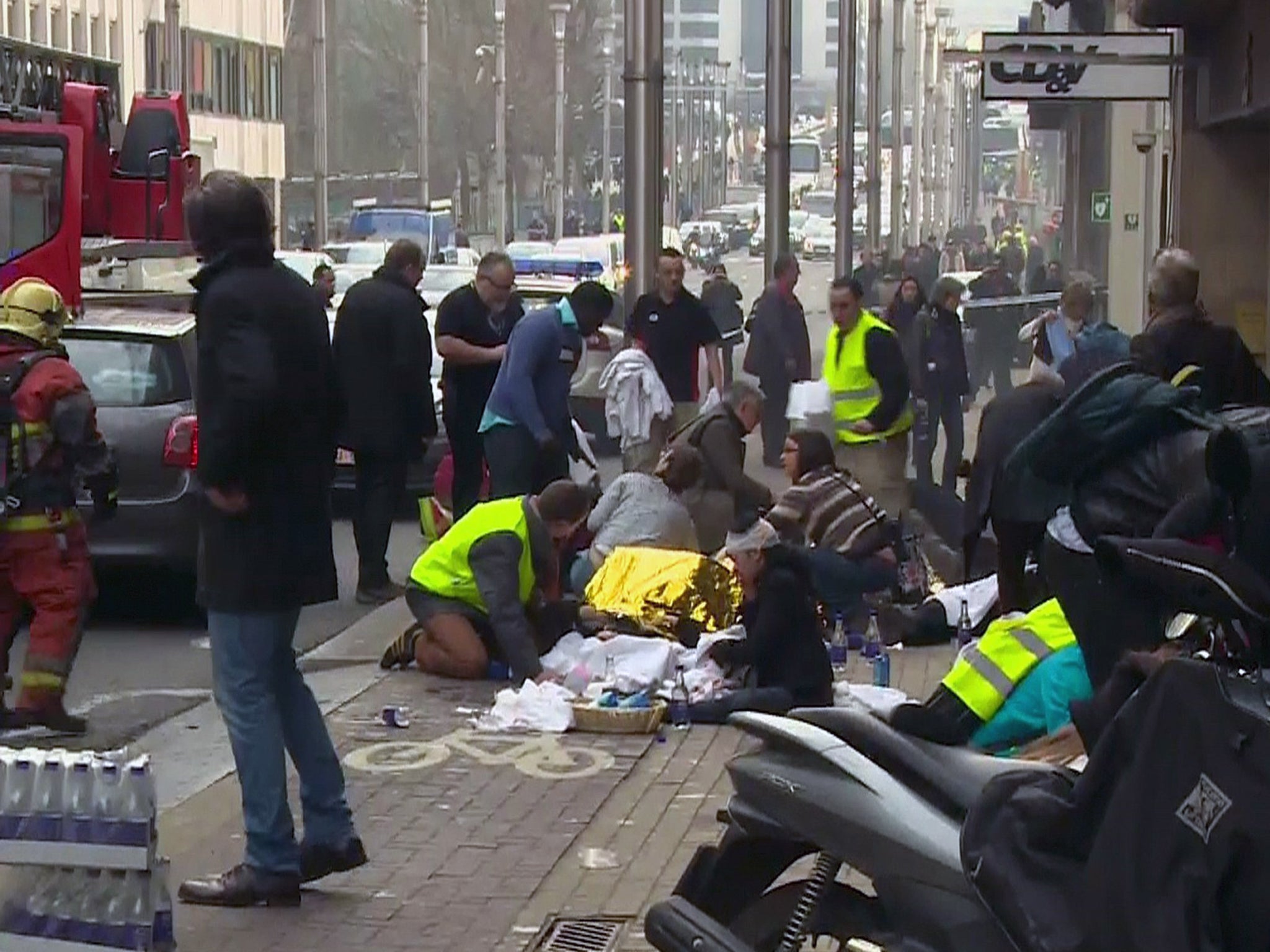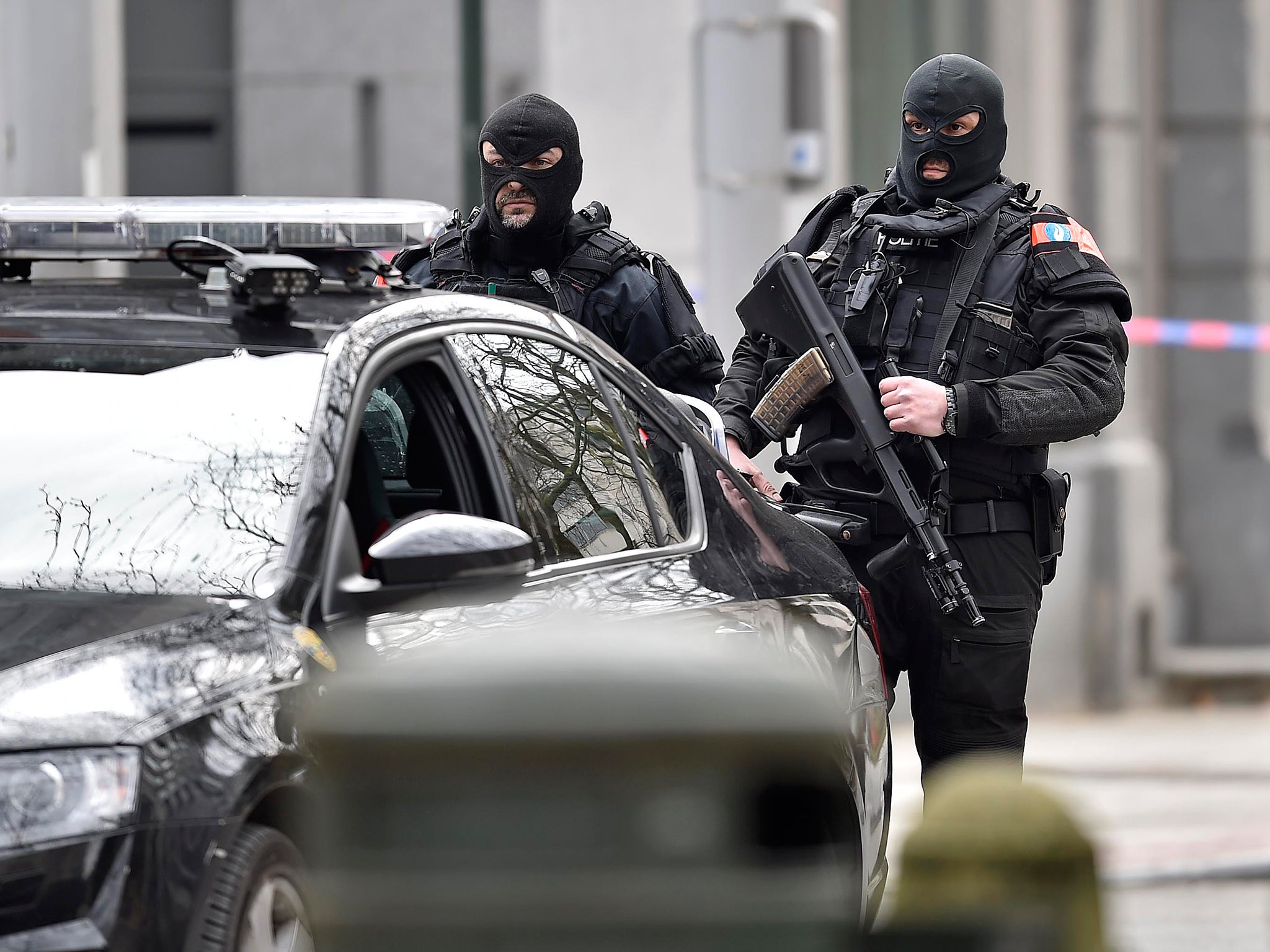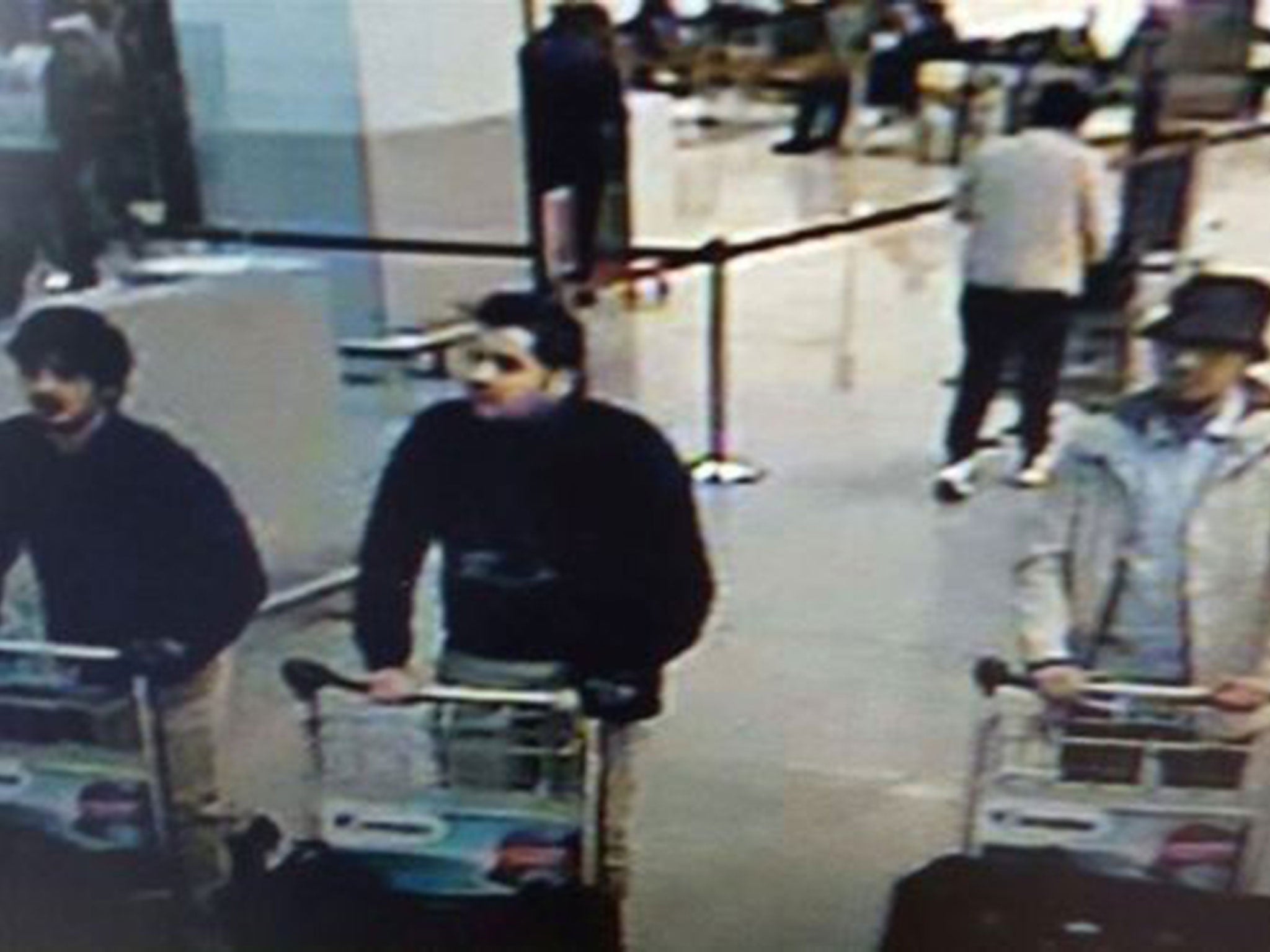Brussels attacks: Isis threatens to bring more 'dark days' to Europe and countries fighting its militants
'What awaits you will be even harsher, even more bitter, by the permission of Allah,' a statement said

Your support helps us to tell the story
From reproductive rights to climate change to Big Tech, The Independent is on the ground when the story is developing. Whether it's investigating the financials of Elon Musk's pro-Trump PAC or producing our latest documentary, 'The A Word', which shines a light on the American women fighting for reproductive rights, we know how important it is to parse out the facts from the messaging.
At such a critical moment in US history, we need reporters on the ground. Your donation allows us to keep sending journalists to speak to both sides of the story.
The Independent is trusted by Americans across the entire political spectrum. And unlike many other quality news outlets, we choose not to lock Americans out of our reporting and analysis with paywalls. We believe quality journalism should be available to everyone, paid for by those who can afford it.
Your support makes all the difference.Isis has threatened to bring “dark days” to the international alliance of nations battling its militants after claiming responsibility for the Brussels attacks.
At least 30 people were killed in three bombings at the Belgian capital’s main airport and a Metro station near European Union headquarters.
In a statement issued through its official propaganda channel, the terrorist group said a “secret cell of soldiers” had launched the attack.
Claiming to have “cast fear and terror into the hearts of the crusaders” it hailed an unspecified number of “martyrs”, claiming they were armed with explosive belts, bombs and machine guns
“We vow to bring dark days to the crusader nations that have allied themselves against the Islamic State, in response to their aggression against our state,” the statement continued.
“And what awaits you will be even harsher, even more bitter, by the permission of Allah.”
It appeared to claim that all of the attackers blew themselves up but police said only two suspects had died and a third was on the run, after finding and destroying an apparently abandoned explosives belt in Brussels Airport.
The group initially claimed responsibility for the massacres in a brief English post but later issued longer missives in Arabic and French.
Its propaganda appeared to exaggerate the death toll of the co-ordinated bombings, putting it at 40 despite the official estimate standing at 31 on Tuesday afternoon.
The timing of the attacks, coming days after the arrest of Paris attacks suspect Salah Abdeslam was considered significant but no mention of the captured militant was made.
As the death toll rose amid continuing rescue operations, Isis supporters celebrated the attacks on Twitter, with one hailing a “beautiful day”.
The man claimed to have received a message from an Isis militant to the group’s supporters in Belgium reading: “We have come to you with slaughter.”
Alongside al-Qaeda, Isis is considered one of the few international terrorist organisations with the means and manpower to target a European city on this scale.
Investigations into the massacres that killed 130 people in Paris in November uncovered a wide network of hideouts and safe houses across France and Belgium, including a bomb-making factory concealed inside a flat.

The so-called Islamic State had hailed those attacks as "the beginning of the storm".
Belgian authorities were hunting for members of the network linked to those attacks and the atrocities in Brussels after Abdeslam, the only surviving attacker from November, reportedly told investigators he was part of a cell planning further massacres.
“We fear that people are still at large,” said Didier Reynders, the Belgian foreign minister.
Federal police have issued a wanted notice for a man caught on CCTV footage wheeling a luggage trolley next to the two suspected bombers.
The nationwide terror alert has been raised to its highest possible level, with all public transport in Belgium stopped and transport hubs and tourist attractions closed.
The Belgian capital previously shut down in the days following the Paris attacks amid fears it would be targeted and security has remained high following revelations that many of the militants involved lived in or had links to the city.

Its official New Year fireworks display and festivities were cancelled after another plot was uncovered but after months of armed police and soldiers patrolling the streets, and Abdeslam’s eventual capture, the mood had been starting to relax when the bombs struck.
The latest attack has sparked governmental and diplomatic meetings across Europe as the continent continue attempts to increase counter-terrorism co-operation.
A joint statement from heads of EU states called the bombings an “attack on our open democratic society”.
“European Union and its Member States stand firm with Belgium in solidarity and are determined to face this threat together with all necessary means,” it continued.
“This latest attack only strengthens our resolve to defend the European values and tolerance from the attacks of the intolerant. We will be united and firm in the fight against hatred, violent extremism and terrorism.”
Security has been increased at airports and transport hubs across Europe as investigations continue.
Join our commenting forum
Join thought-provoking conversations, follow other Independent readers and see their replies
Comments